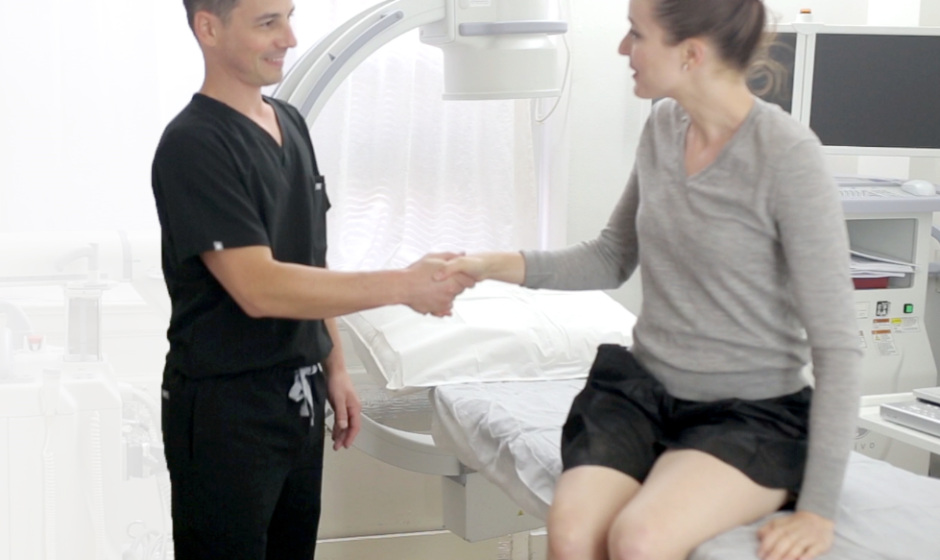Varicose veins are swollen, twisted veins that often appear on the legs and can cause discomfort, pain, and cosmetic concerns. If you’re wondering what kind of doctor treats varicose veins, the answer lies in specialized medical professionals who focus on vascular health and vein conditions. Understanding who these experts are will help you seek the right care and improve your chances of effective treatment.
Which Medical Specialist Should You Consult for Varicose Veins?
The primary doctors who handle varicose vein treatment include vascular surgeons, phlebologists, and sometimes dermatologists or interventional radiologists. Each of these professionals brings a unique set of skills to the table in diagnosing and treating varicose veins.
- Vascular Surgeons are trained to perform surgical and minimally invasive procedures to treat all types of vein diseases, including varicose veins. They understand the complexities of the vascular system and offer advanced treatments.
- Phlebologists specialize exclusively in vein diseases. Their focus is on diagnosing, managing, and treating varicose veins and spider veins using non-surgical and minimally invasive techniques.
- Interventional Radiologists use imaging technology to guide minimally invasive treatments, such as laser therapy or sclerotherapy, to close off damaged veins.
- Dermatologists sometimes handle varicose veins, particularly when the issue affects the skin or cosmetic appearance. However, they often collaborate with vascular specialists.
Knowing which specialist to see depends on your symptoms and the severity of your varicose veins.
How Do You Find a Reliable Vein Treatment Clinic?
When seeking treatment, it is crucial to find a reputable vein treatment clinic. A good clinic will have experienced doctors, up-to-date technology, and a comprehensive approach to managing vein problems.
Here are some tips to help you find a trustworthy vein treatment clinic:
- Look for board-certified specialists: Ensure the clinic’s doctors are board-certified in vascular surgery, phlebology, or interventional radiology.
- Check patient reviews and testimonials: Hearing from previous patients can give you insight into the clinic’s quality of care and success rates.
- Assess the clinic’s technology: Modern vein treatment clinic use the latest minimally invasive techniques like endovenous laser therapy (EVLT), radiofrequency ablation (RFA), and ultrasound-guided sclerotherapy.
- Evaluate consultation and diagnostic services: A comprehensive vein treatment clinic will offer detailed consultations, ultrasound vein mapping, and personalized treatment plans.
What Are the Common Treatments Offered at a Vein Treatment Clinic?
A vein treatment clinic provides various options for managing varicose veins. Depending on the severity of your condition, the doctor may recommend one or more of the following treatments:
- Compression Stockings: These specially designed stockings improve blood flow and reduce symptoms but do not eliminate varicose veins.
- Sclerotherapy: Involves injecting a solution into the vein, causing it to collapse and fade over time. This is commonly used for smaller varicose and spider veins.
- Endovenous Laser Therapy (EVLT): A minimally invasive laser treatment that closes off larger varicose veins.
- Radiofrequency Ablation (RFA): Similar to EVLT but uses radiofrequency energy to heat and close the affected vein.
- Vein Stripping and Ligation: A surgical option for severe varicose veins, where the problematic vein is tied off and removed.
- Ambulatory Phlebectomy: The doctor removes varicose veins through tiny incisions in the skin.
These procedures are typically performed in outpatient settings, with quick recovery times and minimal discomfort.
Why Is It Important to See a Specialist for Varicose Vein Treatment?
Varicose veins may seem like a cosmetic issue, but untreated varicose veins can lead to complications such as skin ulcers, blood clots, and chronic venous insufficiency. Seeing a specialist ensures that you receive a proper diagnosis and treatment plan tailored to your needs.
Specialists at vein treatment clinics use advanced diagnostic tools such as duplex ultrasound to assess the function of your veins. This allows them to pinpoint the source of the problem rather than just treating the visible veins.
Moreover, a specialist can offer the latest minimally invasive treatments that provide effective results with less pain and downtime compared to traditional surgery.
What Should You Expect During Your First Visit to a Vein Treatment Clinic?
During your initial visit, the doctor will perform a thorough medical history review and physical exam. You can expect to discuss your symptoms, family history of vein disease, and any previous treatments.
The clinic will likely use duplex ultrasound to visualize blood flow and check for valve malfunction in the veins. This painless test is critical for an accurate diagnosis.
After evaluating the results, your doctor will explain your condition and discuss the most suitable treatment options. The goal is to relieve symptoms, prevent complications, and improve the appearance of your legs.
How Can You Prepare for Varicose Vein Treatment?
Before undergoing treatment at a vein treatment clinic, it’s essential to follow your doctor’s instructions carefully to ensure the best outcome. Preparation might include:
- Avoiding certain medications that can increase bleeding risk.
- Wearing loose, comfortable clothing on the day of the procedure.
- Arranging transportation, especially if sedation is involved.
Post-treatment, you may be advised to wear compression stockings and avoid heavy exercise for a short period.
Are Varicose Vein Treatments Covered by Insurance?
Many insurance plans cover medically necessary varicose vein treatments, especially if you experience symptoms like pain, swelling, or skin changes. Cosmetic treatments aimed solely at improving appearance are often not covered.
It’s advisable to check with your insurance provider and the vein treatment clinic’s billing department to understand your coverage and any out-of-pocket costs.
How Effective Are Treatments at a Vein Treatment Clinic?
Modern vein treatment clinics achieve excellent results with minimally invasive procedures. Most patients experience significant symptom relief and visible improvement after treatment.
The recurrence of varicose veins is possible but less common with proper management and lifestyle changes. Specialists can provide guidance on preventive measures, including maintaining a healthy weight, exercising regularly, and avoiding prolonged standing or sitting.
What Lifestyle Changes Can Support Vein Health?
In addition to medical treatments, lifestyle modifications play a vital role in managing varicose veins and preventing their progression. Your vein specialist will likely recommend:
- Regular exercise to improve circulation.
- Elevating your legs when resting.
- Avoiding tight clothing that restricts blood flow.
- Maintaining a healthy diet and weight.
These habits support vein health and enhance the benefits of professional treatment.
Conclusion
If you’re asking, “What kind of doctor treats varicose veins?” the answer is a specialized vascular surgeon or phlebologist at a dedicated vein treatment clinic. These experts provide comprehensive care using advanced diagnostics and a range of minimally invasive treatments. By consulting the right medical professional and choosing a reputable vein treatment clinic, you can effectively manage varicose veins, alleviate symptoms, and improve the appearance and health of your legs.



